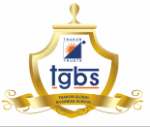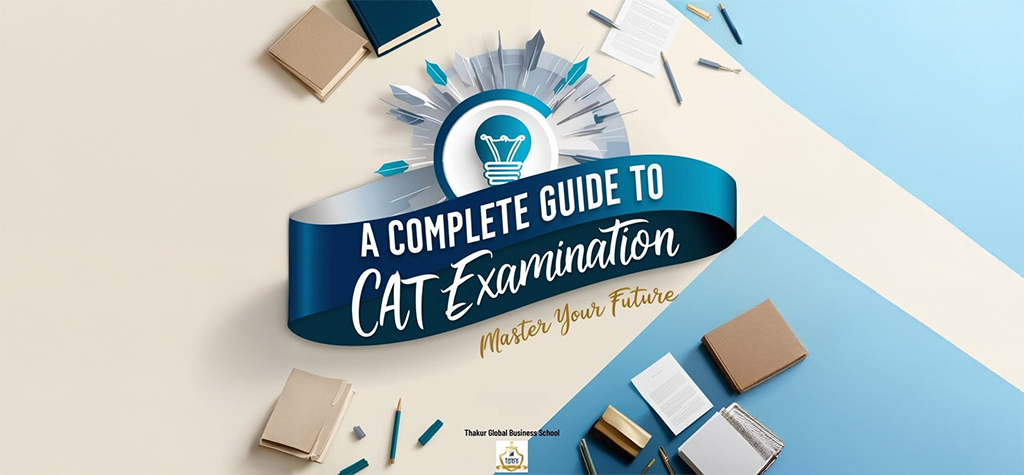As the culmination of your academic journey draws near, the anticipation and excitement of landing your dream job can be both exhilarating and nerve-wracking. Final placements are the gateway to the professional world, where your hard-earned skills and knowledge are put to the test. For PGDM graduates, this pivotal moment can determine the trajectory of their careers.
To help you navigate this crucial phase with confidence and success, we have curated a
comprehensive guide filled with top interview tips. Read on to discover the keys to unlocking your potential and securing that coveted role.
Table of content
- Preparing for common interview questions and practising your responses
- Highlighting your PGDM degree and showcasing your skills and experience through internships and projects
- Following up with a thank-you note or email after each interview
Preparing for common interview questions and practising your responses
Preparing for common interview questions during placements and practising your responses is crucial for securing a desirable job opportunity after completing a PGDM degree. Here’s a comprehensive guide on how to prepare for common interview questions in the context of PGDM placements:
Research the Industry and Company: Begin by researching the industry and the specific company. Understand their mission, values, products, services, and recent developments. Tailor your responses to align with their culture and goals.
Review your resume: Expect questions based on your resume. Be ready to elaborate on your educational background internships, projects, and extracurricular activities. Highlight how these experiences have prepared you for the role.
Identify common interview questions: Familiarise yourself with typical interview questions such as “Tell me about yourself” and “Why do you want to work here?” “What are your strengths and weaknesses?” “Give an example of a time when you faced a challenge,” and “Where do you see yourself in five years?” These questions are commonly asked and form the foundation for your preparation.
Use the STAR Method: For behavioural questions (e.g., “Tell me about a time when you worked in a team”), use the STAR method—Situation, Task, Action, and Result—to structure your responses. Describe the situation, your role and responsibilities, the actions you took, and the positive outcomes or lessons learned.
Mock Interviews: Conduct mock interviews with a mentor, career counsellor, or peer. This simulates the interview experience and provides constructive feedback on your responses, body language, and overall performance.
Prepare Questions for the Interviewer: Most interviews conclude with an opportunity for you to ask questions. Prepare insightful questions about the company, team, or role to demonstrate your interest and curiosity.
Thus, preparing for common interview questions during placement after the completion of respective PGDM programmes is an essential part of your job search strategy. It helps you stand out, articulate your qualifications effectively, and boost your confidence during interviews. By investing time and effort in this preparation, you can increase your chances of securing the ideal job placement that aligns with your career goals and aspirations.
Highlighting your PGDM degree and showcasing your skills and experience through internships and projects
When you’re preparing for a job interview, especially after completing a PGDM degree, it’s essential to effectively highlight your educational background and demonstrate your skills and experience gained through internships and projects. Here’s how you can do it to make a strong impression:
Craft Your Elevator Pitch: Start the interview by introducing yourself briefly, mentioning your PGDM degree and the institution where you pursued it. Keep it concise, focusing on your passion for the field and eagerness to contribute to the company’s success.
Emphasise Relevant Coursework: Highlight specific courses or subjects from your PGDM programme.Discuss how these courses equipped you with the knowledge and skills needed for the role.
Discuss Internship Experiences: If you completed internships during your PGDM programme, share the key takeaways and contributions you made during these experiences. For instance, there are different training programmes being offered at TGBS along with the PGDM curriculum.
Showcase Project Work: PGDM programmes involve various live projects and industry assignments; Choose a few projects that are most relevant to the position and discuss your role, the challenges you faced, and the outcomes achieved.
Demonstrate Problem-Solving skills: Use specific examples from your coursework, projects, or internships to illustrate your problem-solving abilities. Explain how you identified issues, developed solutions, and implemented them successfully.
Discuss Soft Skills: In addition to technical skills, employers value soft skills like communication, adaptability, and time management. Share instances where you demonstrated these skills, either in a team setting or while working independently.
Connect Your Experiences to the Job: Throughout the interview, draw connections between your PGDM experiences and the requirements of the position. For instance, the PGDM programme at TGBS, Mumbai, provides corporate relevant experiences that help you grow professionally.
Mr. Vishwajit Vishwakarma, Associate- Global Recruitment from GEP Worldwide, a TGBS Mumbai alumni, says, “Thakur Global Business School, Mumbai, truly bridges the gap between academia and the corporate world. Their PGDM programme offers invaluable experiences and insights that align perfectly with the demands of today’s professional landscape, preparing students for success in the real world.”
Ask Thoughtful Questions: At the end of the interview, ask questions that demonstrate your interest in the company and the industry. This shows that you’re not only a qualified candidate but also genuinely enthusiastic about the role.
Your PGDM is a valuable asset that can set you apart from other candidates. By effectively showcasing your skills and experience gained through internships and projects, you can demonstrate your readiness to excel in your desired role.
Following up with a thank-you note or email after each interview
Following up with a thank-you note or email after each interview is a crucial practise that demonstrates professionalism and gratitude. It not only reaffirms your interest in the position but also leaves a positive impression on potential employers.
A well-crafted thank-you message allows you to express appreciation for the opportunity to interview and reiterate key points about your qualifications and enthusiasm for the role.
This simple gesture can set you apart from other candidates and contribute to building strong relationships with recruiters and companies throughout your placement process, potentially paving the way for future career opportunities.
Conclusion
In conclusion, final placements for PGDM students can be a challenging yet rewarding experience. By following these top interview tips, you can significantly enhance your chances of securing your dream job and launching your career on the right path. Remember to prepare thoroughly, showcase your skills and achievements confidently, and demonstrate your passion for the role and the company.


















